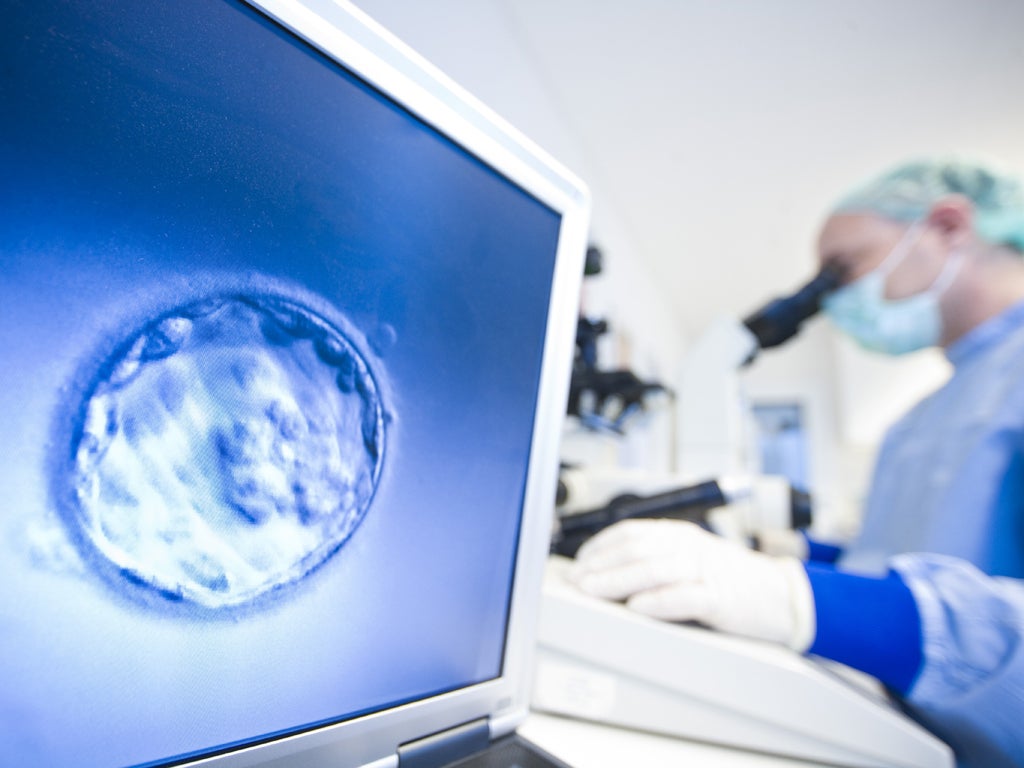Woman loses high court battle to have her daughter's baby in landmark case
The woman known as Mrs M said that her daughter had regarded her eggs as 'living entities in limbo'

Your support helps us to tell the story
From reproductive rights to climate change to Big Tech, The Independent is on the ground when the story is developing. Whether it's investigating the financials of Elon Musk's pro-Trump PAC or producing our latest documentary, 'The A Word', which shines a light on the American women fighting for reproductive rights, we know how important it is to parse out the facts from the messaging.
At such a critical moment in US history, we need reporters on the ground. Your donation allows us to keep sending journalists to speak to both sides of the story.
The Independent is trusted by Americans across the entire political spectrum. And unlike many other quality news outlets, we choose not to lock Americans out of our reporting and analysis with paywalls. We believe quality journalism should be available to everyone, paid for by those who can afford it.
Your support makes all the difference.A woman has lost a High Court battle to be allowed to give birth to her own granddaughter, after her daughter died of cancer.
In what is believed to be the first case of its kind, a Mr Justice Ouseley ruled that the mother could not use her dead daughter’s frozen eggs to have grandchildren.
The unnamed 59-year-old mother and her husband, referred to as “Mr and Mrs M,” had challenged an independent regulator’s refusal to allow them to take the eggs to a fertility treatment centre in the United States.
The Human Fertilisation and Embryology Authority (HFEA) had said that their daughter, "A", who was a victim of cancer, did not give her full written consent.
The parents had said that A was desperate to have children and asked Mrs M to “carry my babies” once she knew she had no hope of surviving the illness and told the judge that her daughter would have been “devastated” if she knew her eggs could not be used.
Mrs M said in a statement that her daughter had “suffered terribly” but was clear that “she wanted her genes to be carried forward after her death.” According to Mr and Mrs M, A had regarded the eggs as “living entities in limbo waiting to be born”.
She had her eggs frozen following her bowel cancer diagnosis at the age of 23, and asked her mother to act as surrogate hoping she would recover, but died in June 2011.
The parents had wanted to take the eggs to New York, where a clinic had indicated it would be willing to provide fertility treatment with donor sperm at an estimated cost of up to £60,000.
The case came to court after the HFEA refused to issue a "special direction" allowing the eggs to be removed from storage at IVF facilities in Hammersmith Hospital, to be exported to America.
The HFEA's statutory approvals committee decided in 2014 there was insufficient evidence to show the daughter wanted the eggs used in the way her parents suggested after her death.
Refusing permission to appeal against his ruling, the judge said he had "much sympathy" for the parents but was not persuaded an appeal would have any prospect of success.
It is still open to the couple to ask the Court of Appeal itself to hear their case, if they so decide.
The judge ordered them to pay £10,000 towards the HFEA's legal costs.
A HFEA spokeswoman said: "This is a very sad case, and the ruling must be heart breaking for the couple."
Additional Reporting: PA
Join our commenting forum
Join thought-provoking conversations, follow other Independent readers and see their replies
Comments